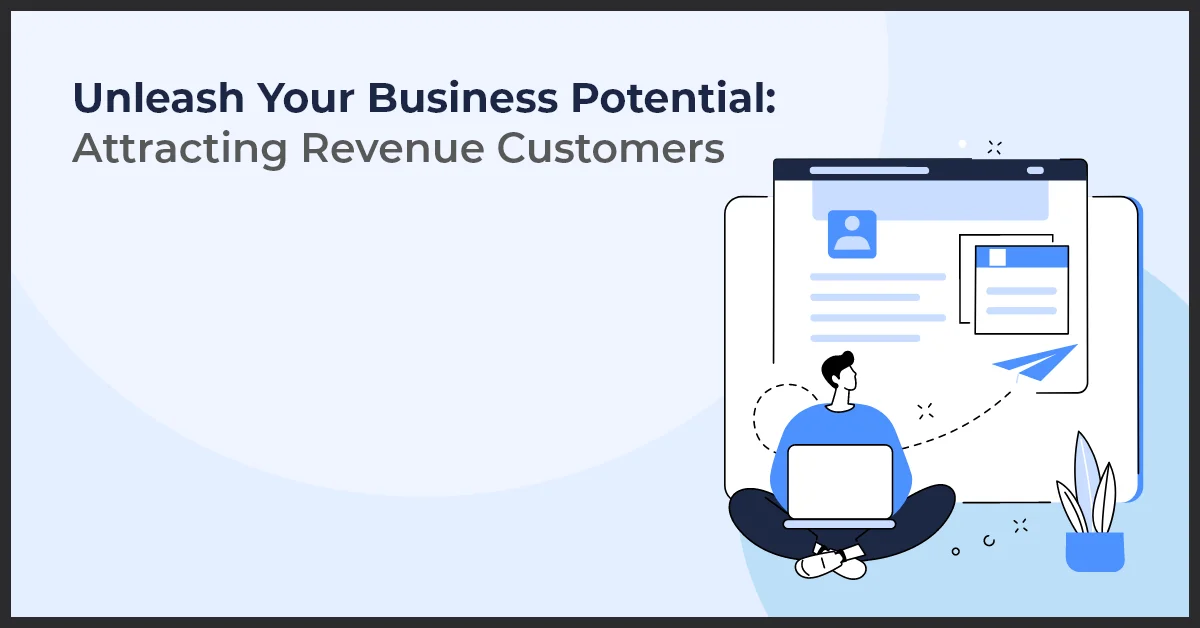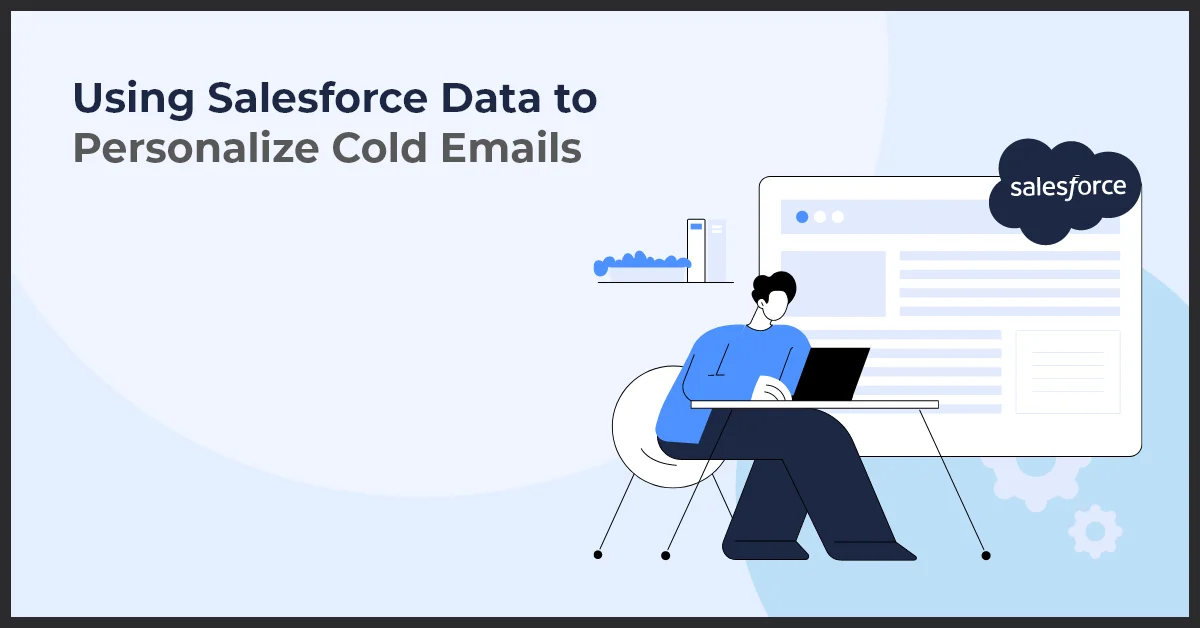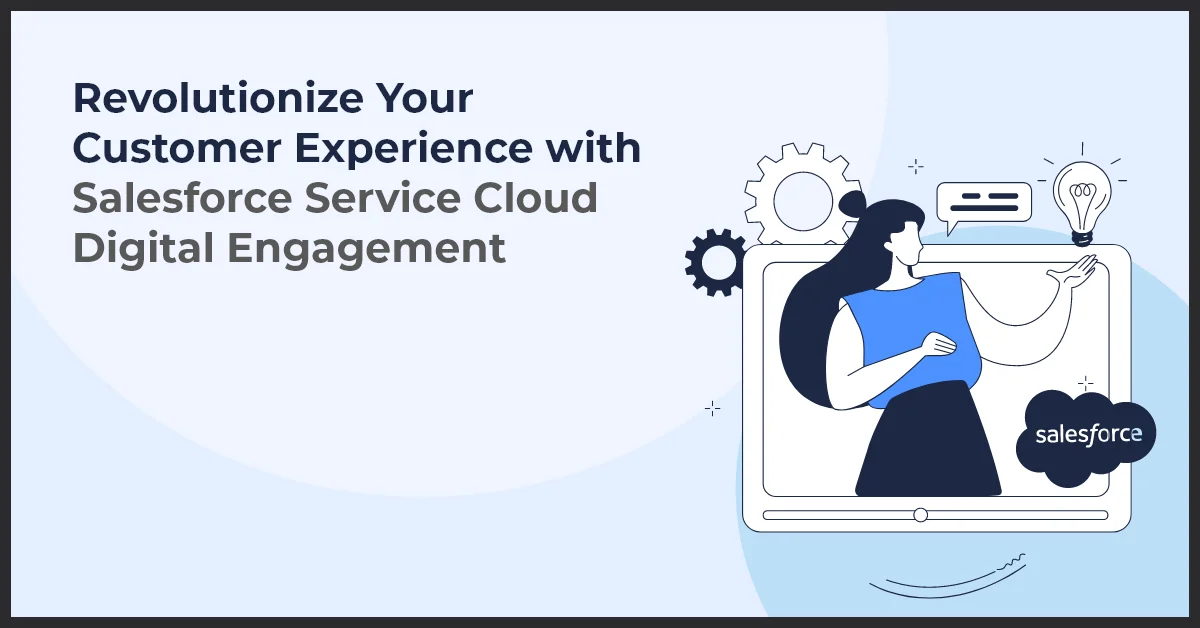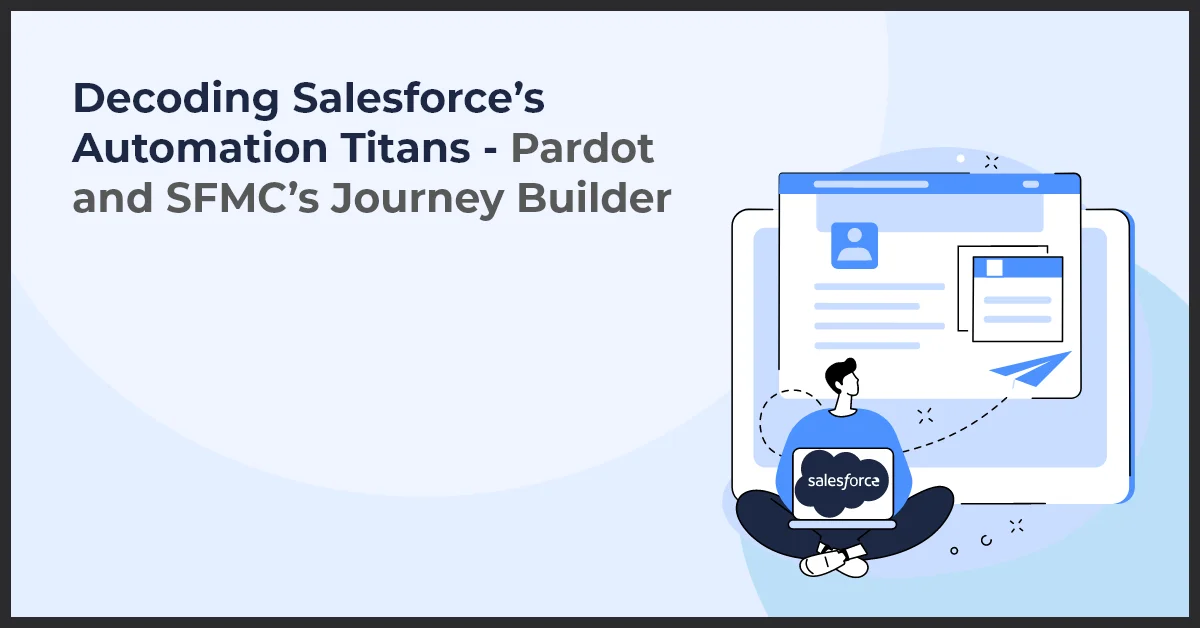Unleash Your Business Potential: Attracting Revenue Customers

Published on: October 30, 2023
Updated on: July 12, 2024
629 Views
- Salesforce
9 min read
Have you ever wondered how some businesses skyrocket their sales figures while others struggle to stay afloat? The secret lies in attracting and nurturing revenue customers – those who not only make one-time purchases but also become repeat buyers and loyal advocates for your brand.
Revenue customers are the lifeblood of any successful enterprise. They are the ones who keep coming back, driving consistent sales, and contributing significantly to your business's bottom line. Unlike one-time customers, revenue customers establish a long-term relationship with your company, providing a stable and predictable revenue stream.
Moreover, revenue customers go beyond simply making purchases. They become your brand ambassadors, spreading positive word-of-mouth, referring others to your products and services, and ultimately increasing your customer base.
So, how do revenue customers contribute to your company's sales figures? Simply put, they are the foundation of sustainable growth. By fostering loyalty through exceptional customer experiences, personalized marketing efforts, and tailored retention strategies, you can transform one-time buyers into lifetime customers.
By recognizing the significance of revenue customers and understanding their impact on your business's success, you can unlock the potential to thrive in today's competitive market. In this content piece, we will guide you through effective strategies, proven tactics, and valuable insights to attract, engage, and retain revenue customers – ensuring your company's growth and continued success.
Sales Strategies for Revenue Customers
When it comes to revenue customers, it is essential to have effective sales strategies in place. These customers play a significant role in driving your business's revenue growth. In this section, we will explore various sales strategies that focus on revenue customers and discuss effective techniques for selling to them.
Explanation of various sales strategies that focus on revenue customers
There are multiple sales strategies that businesses can adopt to target revenue customers successfully. One popular approach is account-based selling, which involves tailoring the sales process to meet the specific needs of high-value revenue customers. By concentrating efforts on these key accounts, businesses can maximize their revenue potential.
Another strategy worth considering is cross-selling, which involves offering additional products or services to existing revenue customers. By identifying complementary offerings that align with their needs and preferences, businesses can increase revenue and deepen customer relationships.
In addition to that, relationship selling is an effective sales strategy for revenue customers. This approach focuses on building trust and fostering long-term connections with customers. By investing in personal relationships and providing exceptional customer service, businesses can secure repeat business and generate more revenue.
Discussion on effective techniques for selling to revenue customers
To sell effectively to revenue customers, it is crucial to understand their unique needs, challenges, and preferences. Conducting thorough market research and segmentation can help businesses gain valuable insights into their revenue customer base.
Additionally, businesses should invest in customer relationship management (CRM) systems to track and manage interactions with revenue customers. A CRM system can help identify sales opportunities, track sales performance, and provide a holistic view of customer relationship history.
Furthermore, businesses should focus on providing personalized and tailored solutions to revenue customers. By understanding their specific pain points and offering customized solutions, businesses can position themselves as valuable partners and drive revenue growth.
Analysis of sales performance and results related to revenue customers
Regular analysis of sales performance related to revenue customers is essential for businesses to optimize their sales strategies. By closely monitoring key metrics, such as revenue generated, conversion rates, and customer satisfaction levels, businesses can identify areas for improvement and make data-driven decisions.
Moreover, businesses should analyze the results of their sales efforts targeting revenue customers. By evaluating the success of different sales strategies, businesses can refine their approaches and focus on the tactics that yield the highest return on investment.
In conclusion, implementing effective sales strategies is crucial for businesses looking to maximize revenue from their customer base. By understanding the various sales strategies that focus on revenue customers, employing effective techniques for selling to them, and analyzing sales performance and results, businesses can drive revenue growth and build long-term relationships with their most valuable customers.
Importance of Customer Relationship Management (CRM) for Revenue Customers
Customer Relationship Management (CRM) systems play a crucial role in managing revenue customers and are an essential tool for businesses looking to maximize their revenue potential. In today's competitive market, it is vital for companies to build strong relationships and maintain regular communication with their revenue customers to ensure continued business growth.
Overview of CRM systems and their role in managing revenue customers
CRM systems are designed to help businesses organize and manage their interactions with customers effectively. These systems provide a centralized platform for storing customer information, tracking sales activities, and managing customer communications. By utilizing CRM systems, businesses can streamline their operations and ensure that revenue customers receive personalized attention and excellent service.
Discussion on customer loyalty programs and their impact on revenue generation
Loyalty programs are an effective way to reward revenue customers for their continued support and incentivize them to stay engaged with the business. By offering exclusive perks, discounts, and rewards, businesses can enhance customer satisfaction and encourage repeat purchases. Loyalty programs not only increase customer loyalty but also contribute to revenue generation by driving customer retention and encouraging new customer acquisitions.
Analysis of customer engagement practices for revenue customers
Effective customer engagement is critical for revenue customers, as it helps establish a strong connection between the business and its customers. Engaging revenue customers through personalized communications, targeted marketing campaigns, and interactive content can significantly impact their purchasing decisions. By understanding their preferences and needs, businesses can tailor their offerings to meet the specific demands of revenue customers, resulting in increased sales and revenue.
In conclusion, implementing customer relationship management strategies and utilizing CRM systems are crucial for businesses looking to maximize revenue from their customer base. By effectively managing revenue customers through loyalty programs, customer engagement, and personalized experiences, businesses can foster long-term relationships and drive revenue growth.
Impact of Revenue Customers on Business Revenue Growth
Revenue customers play a vital role in the growth of a business. Not only do they provide a steady stream of income, but they also contribute to the overall development and success of a company. In this section, we will explore the direct impact revenue customers have on a company's growth trajectory.
Overview of how revenue customers directly impact a company's growth trajectory
Revenue customers are the lifeblood of a business. They are the ones who consistently purchase products or services, generating a reliable source of income. With revenue customers, businesses can plan and implement growth strategies confidently, knowing that there is a stable foundation to build upon.
Furthermore, revenue customers provide valuable feedback and insights that can help drive innovation and improvement within a company. Their loyalty and engagement create a strong relationship that fosters customer advocacy and attracts even more revenue customers.
Discussion on revenue forecasting and models related to revenue customers
Forecasting revenue is essential for business planning and decision-making. With revenue customers, businesses can utilize historical data and customer behavior patterns to develop accurate revenue forecasts. This allows for better resource allocation, target setting, and strategic planning.
Various revenue models can be used to analyze and predict revenue growth from revenue customers. These models take into account factors such as customer lifetime value, average revenue per user, and customer acquisition costs. By understanding these metrics, businesses can make informed decisions regarding their growth strategies.
Analysis of revenue optimization strategies for revenue customer growth
Revenue optimization strategies focus on maximizing revenue from existing revenue customers. This involves upselling, cross-selling, and implementing pricing and revenue management tactics. By identifying customer needs and preferences, businesses can tailor their offerings and pricing strategies to increase customer spend.
Furthermore, effective customer segmentation and targeted marketing campaigns can help attract new revenue customers while retaining existing ones. By optimizing the customer experience and delivering personalized solutions, businesses can foster loyalty and drive revenue growth.
Overall, revenue customers have a significant impact on a company's revenue growth. Understanding their characteristics, behavior, and preferences is crucial for developing effective strategies and optimizing revenue. By prioritizing revenue customers and investing in their satisfaction and loyalty, businesses can accelerate their growth trajectory and achieve long-term success.
Upselling and Cross-Selling Techniques for Revenue Customers
When it comes to maximizing revenue from your existing customer base, upselling and cross-selling are essential strategies. Not only do they increase the average transaction value, but they also foster customer loyalty and repeat business.
Overview of Upselling and Cross-Selling
Upselling involves encouraging customers to purchase a higher-priced or more advanced version of a product or service they originally intended to buy. This technique aims to increase the overall value of the sale.
Cross-selling, on the other hand, focuses on offering complementary products or services that enhance the customer's original purchase. By suggesting additional items, businesses can expand their revenue streams and create a more comprehensive customer experience.
Customer Segmentation for Targeted Offers
Segmenting your revenue customers based on their preferences, needs, and purchasing behavior is crucial for successful upselling and cross-selling campaigns. By understanding their unique characteristics, you can tailor your offers and promotions to match their specific interests.
- Demographic Segmentation: Consider factors such as age, gender, income level, and occupation to customize your offers accordingly.
- Purchase History Segmentation: Analyze customers' past purchases to identify patterns and recommend related products or services they may find appealing.
- Behavioral Segmentation: Examine customers' browsing and shopping behavior to anticipate their needs and make relevant recommendations.
Personalized Marketing Campaigns for Revenue Generation
A one-size-fits-all marketing approach is no longer effective in today's competitive landscape. Personalized marketing campaigns, tailored to individual revenue customers, have proven to be highly successful in driving additional sales.
Utilize customer data, such as purchase history and demographic information, to create targeted campaigns that resonate with each segment. Send personalized recommendations, exclusive promotions, and tailored content that appeals to their specific interests and preferences.
Engage with your revenue customers through personalized email marketing, dynamic website content, and targeted social media advertisements. By leveraging customer insights, you can increase their receptiveness to upselling and cross-selling opportunities.
Conclusion
After exploring various aspects of revenue customers, it is evident that businesses cannot afford to overlook the importance of effective customer management strategies. By implementing the right sales, customer acquisition, retention, and loyalty programs, businesses can significantly impact their revenue growth and overall success.
The effective management and nurturing of revenue customers are essential for businesses looking to thrive in today's competitive market. It is vital to develop robust strategies and processes that prioritize revenue, customer acquisition, retention, and satisfaction. By doing so, businesses can achieve sustainable revenue growth and ensure long-term success.



